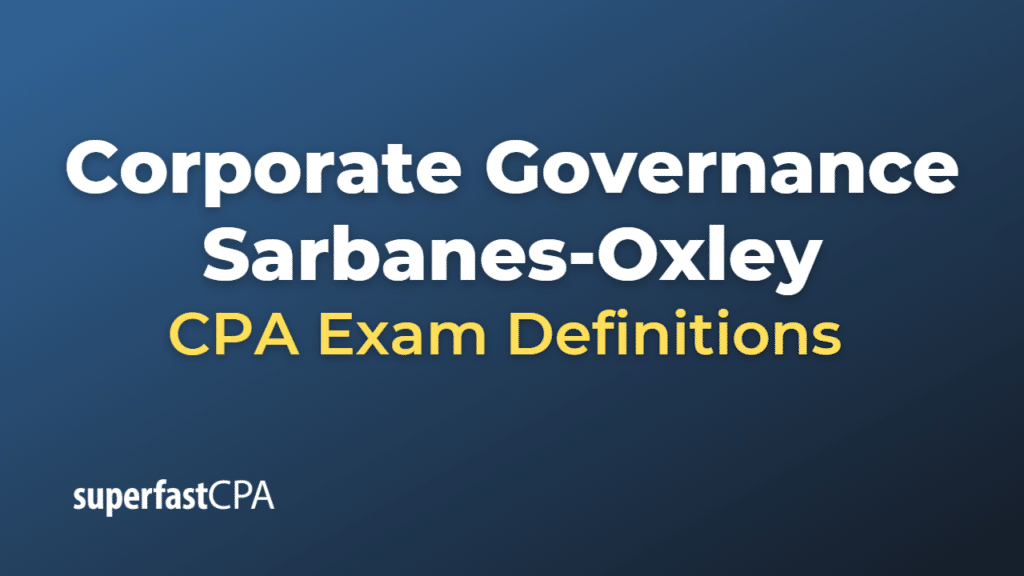Corporate Governance Sarbanes-Oxley
The Sarbanes-Oxley Act of 2002 (SOX) is a U.S. federal law enacted in response to a series of high-profile corporate scandals, including Enron and WorldCom. The main goal of the act is to protect investors by enhancing the accuracy and reliability of corporate disclosures and improving corporate governance practices. Key corporate governance provisions in the Sarbanes-Oxley Act include:
- Establishment of the Public Company Accounting Oversight Board (PCAOB): SOX created the PCAOB as an independent, nonprofit organization to oversee the audits of public companies. The PCAOB has the authority to set auditing standards, inspect registered accounting firms, and enforce compliance with SOX provisions.
- Auditor independence: SOX requires external auditors to be independent of the companies they audit to ensure objectivity and impartiality. The act imposes restrictions on non-audit services provided by auditors to their audit clients, mandates audit partner rotation, and prohibits certain relationships between auditors and client companies.
- Audit committee requirements: SOX mandates that the audit committee of a public company’s board of directors consist entirely of independent directors, with at least one member possessing financial expertise. The audit committee is responsible for appointing, compensating, and overseeing the external auditor.
- Certification of financial reports: SOX requires the CEO and CFO of a public company to personally certify the accuracy and completeness of their company’s financial statements and internal controls over financial reporting. They must also certify that they have disclosed any significant deficiencies or material weaknesses in internal controls to the company’s auditors and audit committee.
- Internal controls over financial reporting: Section 404 of SOX requires public companies to maintain effective internal controls over financial reporting and requires auditors to attest to the effectiveness of these controls. Companies must assess and report on the effectiveness of their internal controls annually.
- Disclosure of off-balance-sheet transactions: SOX mandates the disclosure of off-balance-sheet transactions, arrangements, and obligations that may have a material effect on a company’s financial condition.
- Enhanced financial disclosures: SOX requires public companies to provide more transparent, accurate, and timely financial disclosures, including real-time disclosures of material changes in a company’s financial condition or operations.
- Prohibition of insider trading during pension fund blackout periods: The act prohibits directors, officers, and other insiders from trading company stock during pension fund blackout periods when employees cannot access their 401(k) accounts.
- Protection for whistleblowers: SOX contains provisions to protect employees who report corporate fraud or misconduct from retaliation by their employers.
- Increased criminal penalties: The act imposes increased criminal penalties for securities fraud, corporate fraud, and other white-collar crimes.
These corporate governance provisions aim to restore investor confidence in the U.S. capital markets by ensuring greater transparency, accountability, and integrity in the financial reporting process and corporate governance practices of public companies.













